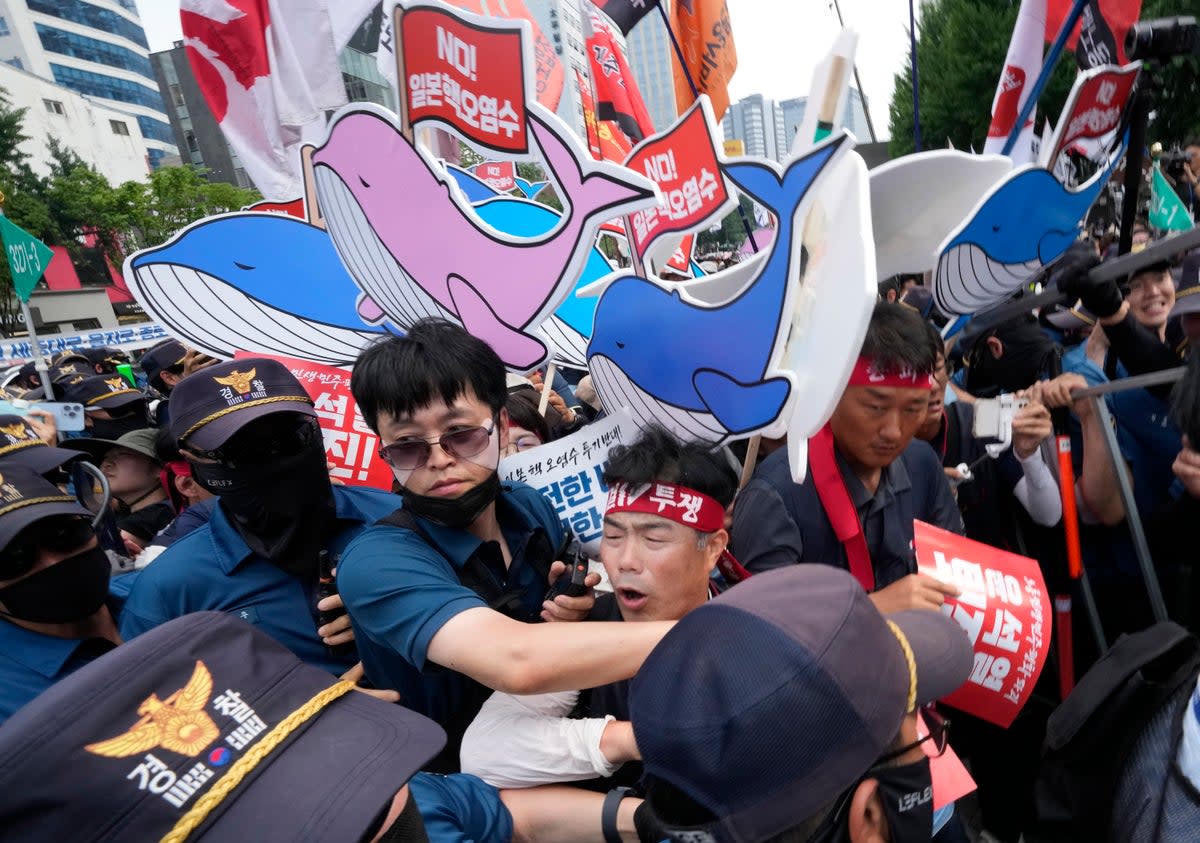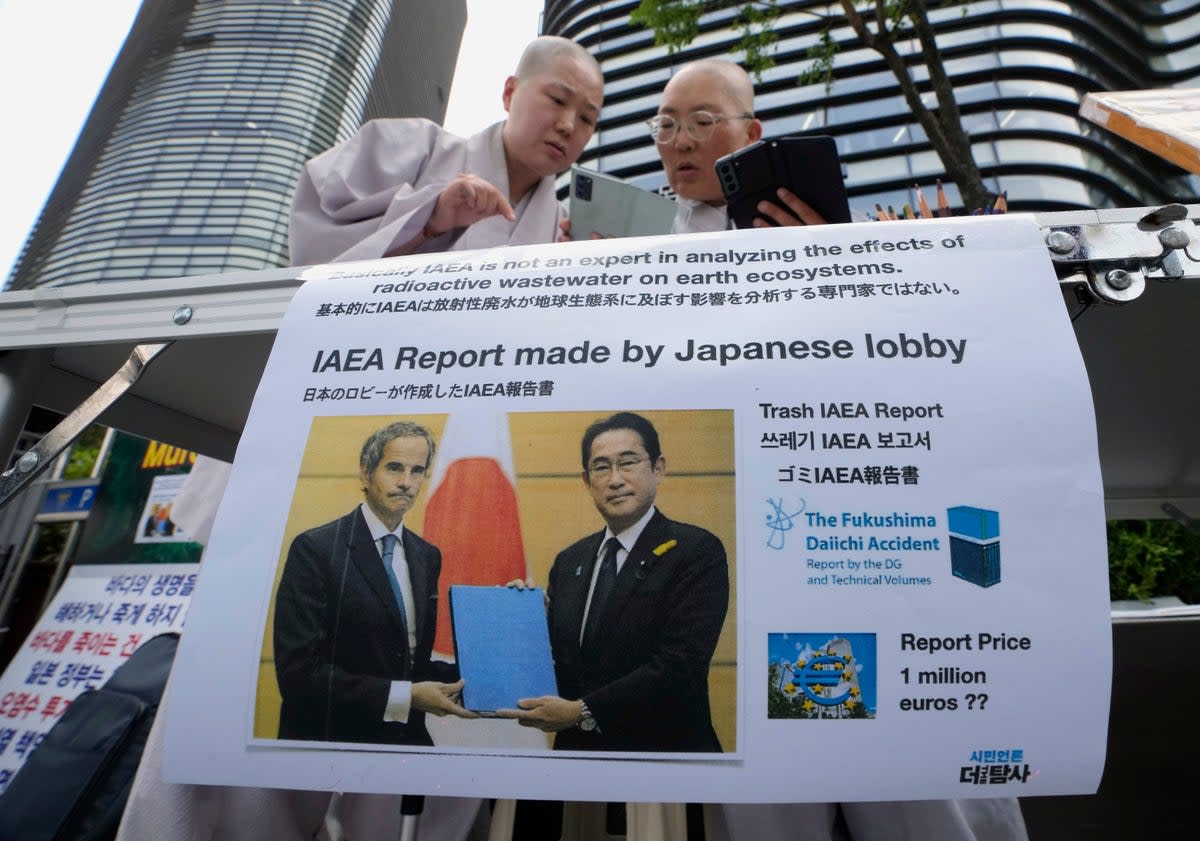Protests break out in South Korea over Fukushima plans to release waste water to ocean

South Koreans poured onto the streets on Thursday in protest against Japan's plans to release treated radioactive water from the tsunami-wrecked Fukushima power plant into the ocean.
The UN watchdog on Tuesday green signalled Japan to release more than 1 million metric tons of water into the Pacific that was used to cool damaged reactors at the power plant hit by an earthquake and a tsunami in 2011.
Seoul, which has been critical of Tokyo's plans, said it respects the conclusions of the two-year-long safety review by the International Atomic Energy Agency (IAEA) that found Japan's plans were consistent with global safety standards. The watchdog said it would have a “negligible radiological impact on people and the environment”.
However, activists in South Korea said they were disappointed with IAEA's decision.
The fear of contamination has forced South Koreans to stockpile salt and other products, while authorities have vowed to ramp up efforts to monitor natural salt farms and maintain a ban on seafood from the waters near the power plan.
“In general, we are very disappointed by the decision,” Hideyuki Ban, co-director of Citizens’ Nuclear Information Centre told the South China Morning Post.
“The government promised that the water would not be released until the plan received the acceptance of the public, and that has clearly not happened.”
Opposition politician Lee Jeong-mi has been staging a hunger strike outside the Japanese embassy in Seoul for more than 10 days to protest what she calls “contaminated water” into the ocean. All 167 lawmakers of the main opposition Democratic Party have planned to launch an overnight sit-in at the National Assembly on Thursday.
"The ocean dumping of the contaminated waters from the crippled plant will pose a threat to all oceans across the world," MP Wi Seong-gon said at a press conference. "The IAEA's report cannot serve as an indulgence to the ocean dumping of contaminated water".

The opposition is expected to escalate the scale of protest by bringing together not only lawmakers, but also aides, staffers and regional party officials.
Japan maintains that the treated water, enough to fill 500 Olympic-sized swimming pools, will be diluted to well below internationally approved levels of tritium (an isotope of hydrogen hard to separate from water) before being released into the Pacific.
Seoul said it will announce on Friday its own assessment of Japan's bid to release the water following large-scale backlash.
"We are currently at the final stage ... and will be able to explain the results at tomorrow's daily briefing," Park Ku-yeon, a vice-ministerial official at South Korea's Office for Government Policy Coordination, told reporters.
China, which previously accused Japan of a lack of transparency, expressed regret over the “hasty” release of the nuclear watchdog’s report. The Chinese commerce ministry on Thursday announced it will pay close attention to developments related to the release amid reports that Beijing may halt the import of seafood from Tokyo.
China was the biggest buyer of Japan’s seafood exports last year, even though it is among several countries that restrict imports from 10 Japanese regions due to the nuclear accident.
Three Japanese government officials and a ruling party lawmaker told Reuters that they expected China to expand restrictions on Japanese seafood.
Two of the officials said that could include a blanket ban.
“We think they may enforce a total ban on Japanese maritime products,” one of the officials said. “They want to punish Japan economically for this.”
“For China, Japanese maritime product imports make up a small share of their market ... but for Japan this is a big market.”
